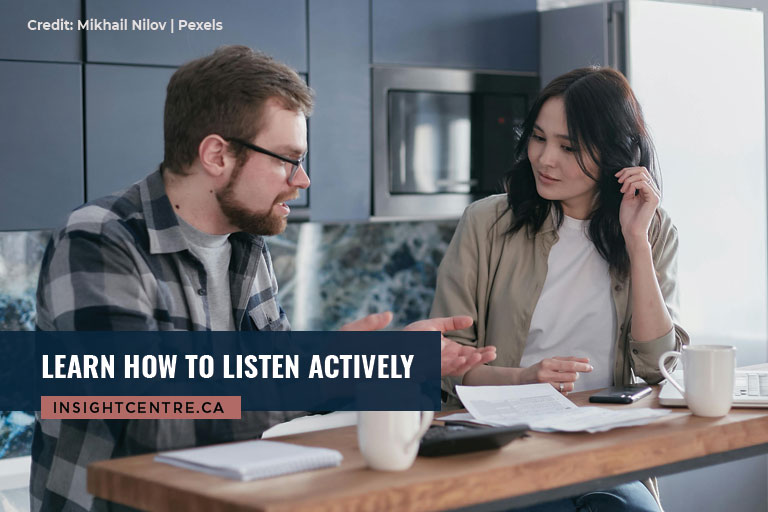
Disagreements are an inevitable part of any relationship, but how couples manage these moments can profoundly affect their bond and well-being. Healthy conflict resolution strengthens relationships, fosters understanding, and promotes mutual growth.
This article explores 9 constructive strategies for couples to handle disagreements, ensuring that every conflict becomes an opportunity for deeper connection rather than a source of division.

Open and honest communication is the cornerstone of resolving disagreements in a healthy manner. Couples should strive to express their feelings, needs, and perspectives without fear of judgment.
This involves active listening. Truly hearing and understanding your partner’s viewpoint is an essential part of constructive conflict management.
Active listening involves giving your full attention, not interrupting, and responding to your partner’s words to ensure clarity. Using non-verbal cues like nodding, maintaining eye contact, and summarizing points to confirm your understanding can make your partner feel valued and heard.
By fostering an environment of transparency, couples can understand each other better, de-escalate the conflict, and find common ground.
Casting blame can immediately put your partner on the defensive, making it difficult to navigate disagreements effectively. By focusing on how certain actions make you feel rather than assigning fault, you can air grievances in a way that’s less likely to provoke a non-productive argument. Remember, the aim of the conversation should be the successful navigation and solution of conflicts, not the apportioning of blame.
Empathy involves putting oneself in the other person’s shoes and understanding their feelings and viewpoint. When couples approach disagreements with empathy, it reduces defensiveness and opens the door to compassionate solutions. Acknowledging and validating each other’s emotions, even when you disagree, can bridge the gap between conflict and resolution.
“I” statements allow individuals to express their feelings and needs without placing blame or criticism on their partner. For example, saying “I feel upset when you ignore my calls” instead of “You always ignore my calls” can lead to a more productive conversation. This approach reduces defensiveness and helps partners understand the impact of their actions.
In the heat of an argument, emotions can run high, making it difficult to communicate effectively. Taking a short break allows both partners to cool down, reflect, and gather their thoughts. This pause can prevent the escalation of conflict and ensure that the conversation resumes with a clearer, calmer mindset.
Setting healthy boundaries is vital for any relationship. During disagreements, respecting each other’s limits and triggers can prevent conflicts from worsening. Boundaries can include physical space, topics of conversation, or certain behaviours. Understanding and honouring these boundaries demonstrates respect and care for each other’s well-being.
In a disagreement, it’s crucial to address the issue at hand rather than attack each other’s character. Focusing on the problem allows couples to work together towards a solution, rather than getting sidetracked by personal attacks. This approach fosters a team mentality, where the goal is to overcome the challenge together.

Healthy conflict resolution is not about winning an argument but finding a solution that respects both partners’ needs and perspectives. Couples should aim for compromise and collaboration, where both individuals feel heard and valued. This mindset promotes a constructive outcome that strengthens the relationship.
In navigating the complexities of a relationship, couples therapy offers a structured and insightful avenue for growth and healing. When facilitated by a skilled psychotherapist, psychotherapy for couples provides numerous benefits that can transform the dynamics of a relationship. Here, we delve into the advantages of engaging in couples counselling, particularly through the guidance of a Barrie therapist at Insight Centre Counselling & Psychotherapy.
One of the primary benefits of couples therapy is the improvement of communication skills. Therapists teach couples how to express their thoughts and feelings effectively and listen to each other without judgment. This fosters a deeper understanding and empathy between partners.
Therapy provides couples with the tools to navigate disagreements in a healthy way. By learning to address conflicts constructively, couples can resolve issues without causing harm to their relationship.
A psychotherapist can help identify recurring patterns in the relationship that may contribute to conflict. Understanding these dynamics allows couples to break negative cycles and work towards more positive interactions.
Therapy sessions often create a safe space for partners to explore deeper issues that may be affecting their connection. Through guided discussions, couples can strengthen their bond and rediscover the intimacy that may have been lost.
Couples therapy not only benefits the relationship but also promotes individual growth. Partners learn about their own emotional needs and how to support each other’s personal development.
Using approaches like the Gottman Method, couples counselling focuses on building love maps, sharing fondness and admiration, and turning towards each other instead of away. This method, offered by Barrie therapists, aims to increase respect, affection, and closeness, manage conflict constructively, and create shared meaning within the relationship.
Disagreements are a natural aspect of any relationship, but they don’t have to lead to negative outcomes. By adopting these 9 healthy strategies, couples can turn conflicts into opportunities for growth and understanding. Open communication, empathy, and a willingness to seek external support when needed can transform the way couples navigate disagreements. Sometimes, couples need external support to navigate their disagreements effectively.
Couples therapy in Barrie offers a safe space for partners to explore their issues with the guidance of a professional. Therapists can provide tools and strategies to improve communication, resolve conflicts, and deepen the emotional connection.
For those looking to strengthen their relationship and improve their conflict resolution skills, Insight Centre Counselling & Psychotherapy offers comprehensive couples therapy in Barrie. Contact +1 647-633-1928 to learn more about how professional guidance can enhance your relationship.
Copyright 2024 Insight Centre | All Rights Reserved | Sitemap | Powered by: Local SEO Search Inc.